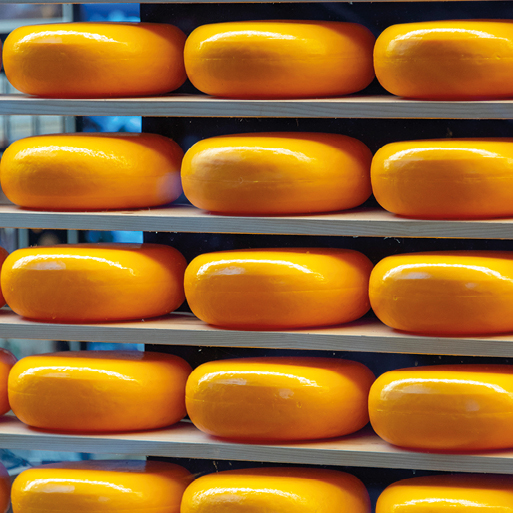27.05.2025
ECJ clarifies conditions for restrictions on active sales in exclusive distribution contracts under the Vertical Block Exemption Regulation

In its judgment of 8 May 2025 (C-581/23, available here), the ECJ provides important clarifications on requirements exclusive distribution systems need to meet in order to be block-exempted from the EU antitrust prohibition: For such an exemption, it is not sufficient that other distributors do not actively sell into the exclusive territory. Rather, the block exemption requires agreements between the supplier and all (!) excluded distributors (at least implied) that they will not actively sell into the exclusive territory. Furthermore, the ECJ clarified that the block exemption only applies within the period for which it is shown that such agreements between the supplier and all excluded distributors were in place.
If these agreements are not set out in writing, the parties run the risk of not being able to prove that they agreed on exclusivity, and consequently, this means that companies have not agreed on an effective ban on active sales into an exclusive territory in their distribution agreements. Furthermore, their behaviour would (i) not be block-exempted, (ii) qualify as a hardcore restriction and therefore, (iii) in general, violate Art. 101 TFEU (the EU antitrust prohibition).
The Dutch company Cono produces Beemster cheese. Cono and Beevers Kaas BV ("Beevers") concluded a distribution agreement for the distribution of this cheese in Belgium (the contractual parties considered this an “exclusive distribution agreement”). Various companies of the Albert Heijn Group, the world's largest operator of supermarkets ("AH companies"), sold Beemster cheese in their Belgian supermarkets – cheese that they had not purchased from Beevers and which Cono had produced for markets outside Belgium. They had at least tacitly agreed not to actively sell Beemster cheese into Belgium. Beevers sued the AH companies, accusing them of having participated in the breach of the exclusive distribution agreement with Cono as third parties by actively selling into Belgium (which gives rise to injunctive relief under Belgian law).
The parties disagreed on whether the exclusive distribution agreement between Cono and Beemster complied with competition law, more specifically, whether it fulfilled the ‘parallel imposition requirement’ of Art. 4 b) i) Vertical Block Exemption Regulation.
According to Art. 4 b) i) Vertical Block Exemption Regulation, exclusive territorial allocations are, in principle, hardcore restrictions that remove the benefit of the block exemption for the whole agreement. Exceptionally, however, exclusive allocations (restricting active sales) are exempted. One condition for this exception is that active sales into an exclusive territory are reserved to the supplier or are exclusively allocated to one distributor by the supplier (or, according to the new Vertical Block Exemption Regulation, a maximum five exclusive distributors). Such restriction of active sales is block-exempted on the basis of the efficiency consideration that exclusive distributors (according to the new Vertical Block Exemption Regulation a maximum of five distributors) are incentivized to invest in the distribution of a product through territorial protection against active sales from outside that territory. The exclusive distributor (or the five exclusive distributors) are therefore protected against free-riding.
The Belgian court took the view that Cono's distribution contract with Beevers on its own did not show that Belgium was exclusively allocated to Beevers. Rather, Beevers also had to prove that Cono’s other distributors (all of them!) had agreed not to actively sell into Belgium. The Belgian competition authority, which was involved in the legal dispute as amicus curiae, was of the opinion that the court could infer the tacit consent of Cono’s other distributors, not to actively sell into Belgium, from the mere fact that none of them actually did so. Beevers sided with the competition authority.
In contrast, the AH companies argued that such a view disregarded that the burden of proof for fulfilling the conditions for the block exemption lay with Beevers. The tacit consent of all other distributors to refrain from active sales into the exclusive territory could only be assumed if Beemster proved that Cono, when granting Beemster exclusivity, had communicated to all its distributors its strategy of excluding them from active sales into Belgium and required them to comply with this restriction. Cono should have done the same for all distributors that subsequently joined its dealer network. The Belgian court referred the question to the ECJ for a preliminary ruling under Art. 267 TFEU.
While this case concerned Regulation 330/2010, which has expired, the same question arises with regard to Art. 4 b) i) of the new Vertical Block Exemption Regulation 2022/720.
Is the mere fact that distributors do not actively sell into a territory sufficient to qualify an exclusive distribution system for block exemption? The ECJ answered in the negative. Rather, the Court held, the block exemption requires, that the supplier, when exclusively allocating a distribution territory to a distributor, must protect that particular distributor from active sales by any other of its other buyers. However, neither the Vertical Block Exemption Regulation nor the EU Commission`s Vertical Guidelines specify how the supplier must protect its exclusive distributors from active sales of the excluded distributors.
In order to ensure the effectiveness of such exclusive allocation to one distributor, the ECJ ruled, the supplier must ensure that all its other buyers refrain from active sales into the exclusive territory. Therefore, the supplier must conclude an agreement with the (i.e. all) excluded distributors in accordance with the standards set out for “agreements” pursuant Art. 101 (1) TFEU. Hence, the parallel imposition requirement must be interpreted with regard to the concept of an agreement within the meaning of Art. 101 TFEU. According to the ECJ’s established case law, an agreement exists if the companies have expressed their joint will to behave in a certain way on the market. A merely unilateral policy of one of the parties is not sufficient (see judgment of June 29, 2023, Super Bock Bebidas, C-211/22, EU:C:2023:529, para. 47 et seq. with further references).
The fact alone that other distributors (apart from the AH companies) did not actively sell into Belgium was not sufficient according to the ECJ. It is also possible, the ECJ explained, that buyers made an autonomous decision not to actively sell into Belgium, independent of the exclusive territorial allocation contained in the agreement between Cono and Beevers. However, the ECJ clarified that an agreement in writing is not necessary. Rather, explicit or implicit behavior is sufficient if it allows one to conclude that the excluded distributors have agreed to the supplier's request to refrain from active sales into the exclusively allocated territory. Proof could be provided, as always, by direct or circumstantial evidence.
The Belgian court had also asked for what period the block exemption applied. The ECJ ruled that it (only) applied for the period for which it was proven that all excluded distributors had agreed to the supplier's request to refrain from active sales in the exclusive territory.
In order to fulfill the requirements for a territorial exclusivity to be block-exempted, the supplier must oblige all its other buyers (who have not been allocated that territory) to refrain from active sales into the exclusive territory (“parallel imposition requirement”). The supplier must commit all those distributors to whom the territory is not exclusively allocated accordingly. The ECJ argues consistently when it allows evidence of such an agreement between the supplier and the excluded buyers to be provided not only by means of a written contract, but also by circumstantial evidence of an implied (de facto) agreement.
However, tacit agreements are not advisable when setting up and running an exclusive distribution system. If the required agreements are not sufficiently verifiable and proven – in particular, if they are not in writing – the supplier may be liable to pay damages to the exclusive distributor when other distributors actively sell into the contractual territory. The other distributors could argue that they could withdraw from the only implied agreement or that such an agreement never became an effective part of the contract (which is an obvious risk given the widespread use of written form clauses).
The supplier also runs the risk of violating antitrust law. This is because a not exempted restriction on active sales is a ‘hardcore restriction’ within the meaning of the Vertical Block Exemption Regulation. Hence, it removes the benefit of the block exemption for the whole agreement. Vertical antitrust violations due to customer or territorial restrictions are generally prosecuted and enforced in the same way as horizontal cartel agreements. In May last year, the European Commission imposed a fine of EUR 337.5 million on Mondelēz and others for unlawful territorial and customer restrictions (see European Commission press release dated May 23, 2024, available here).
Companies that set up an exclusive distribution system or participate in it should therefore ensure not only that the parties regulate the exclusive territorial allocation when setting up an exclusive distribution system for the first time, but also that all distributors to whom the territory is not exclusively allocated are obliged not to actively sell into the distribution territory. If this is not yet the case, they should minimize the aforementioned risks by agreeing on additional contractual clauses with the distributors that are to be excluded from active sales.
The judgment highlights a practical problem that may or may not be easy to solve, depending on the applicable national procedural law: How is Beevers as a customer of Cono supposed to prove that Cono agreed with all other distributors that that they do not actively sell into Belgium if Cono has no interest in supporting Beevers, especially if Cono was participating in breaching the territorial protection? According to the ECJ, proof of agreed exclusivity could be, for example, that Cono had introduced a system of monitoring and punishment to enforce the territorial protection in order to identify and punish those distributors that do not comply with the restriction on active sales.
Finally, the judgment is a reminder that the sometimes-assumed rule of thumb, that an unconditional agreement prohibiting active sales is usually risk-free, is not only wrong, but also dangerous.

Dr Helmut Janssen, LL.M. (King's College London)
Partner
Brussels,
Dusseldorf
helmut.janssen@luther-lawfirm.com
+32 2 627 7763 / +49 211 5660 18763 / +49 1520 16 18763

Anne Caroline Wegner, LL.M. (European University Institute)
Partner
Dusseldorf
anne.wegner@luther-lawfirm.com
+49 211 5660 18742

Samira Altdorf, LL.M. (BSC, Brussels)
Counsel
Dusseldorf
samira.altdorf@luther-lawfirm.com
+49 211 5660 11176

Severin Uhsler
Associate
Munich
severin.uhsler@luther-lawfirm.com
+49 89 23714 24671